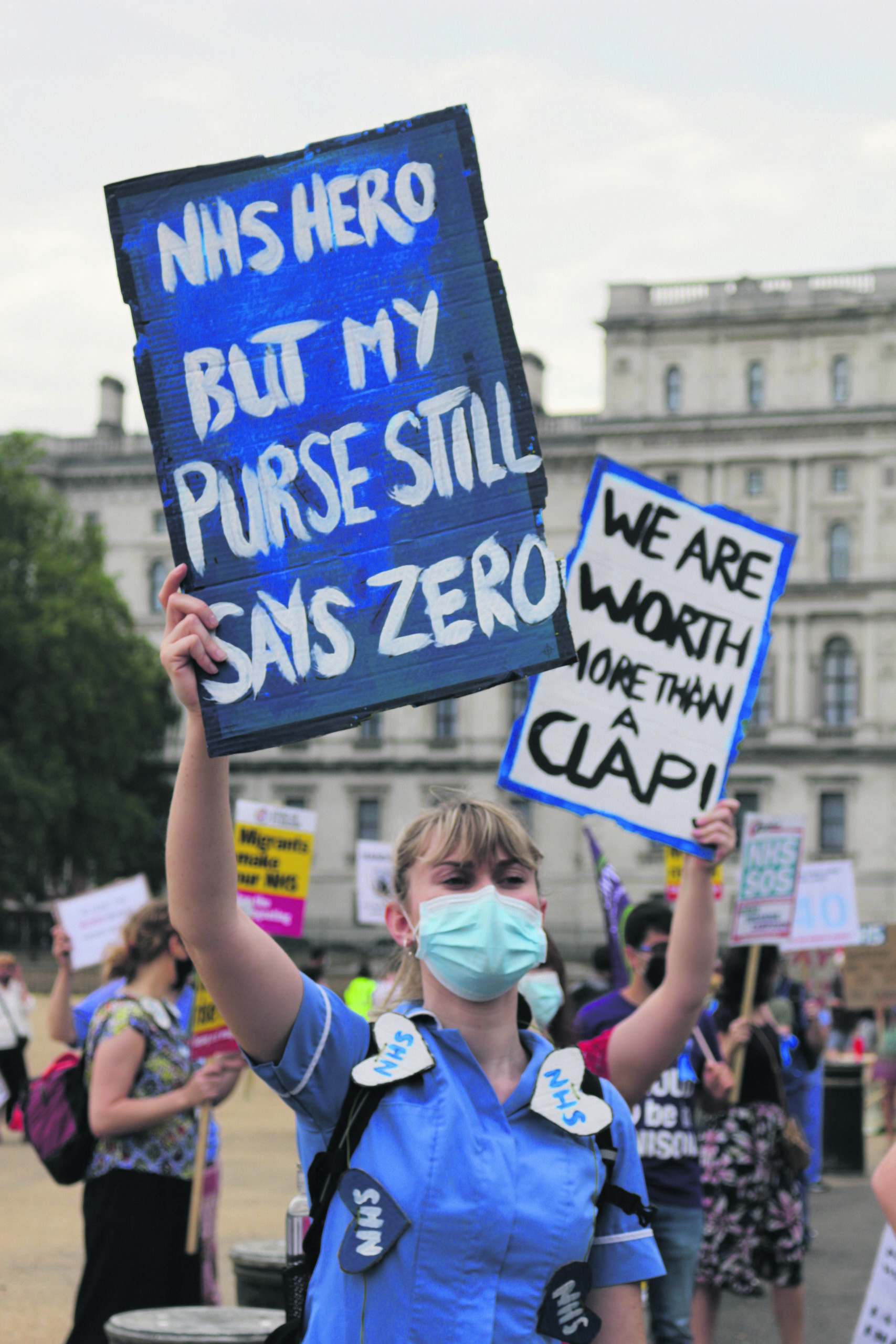Michelle Jarrett-Ruecroft, Nurse Practitioner, RCN Steward
The Royal College of Nursing (RCN) has announced a historic intention to take national strike action – the first ever in the RCN’s history. The Tory-supporting media are on the attack. They are already reporting hugely inflated ‘average nurse salaries’ in an effort to sway public opinion and misrepresent nurses as being greedy.
What they are not reporting is that this is not just about pay. It is primarily about patient safety and reduced staffing levels, which is a direct result of pay restraint since the Tory-Lib Dem coalition came to power in 2010. The financial crash saw all staff on Agenda for Change (AfC) within the NHS face a pay freeze in the name of austerity, followed by a prolonged 1% cap.
The bursary for student nurses was also scrapped, which results in nurses qualifying from a three-year degree course with approximately £70,000 of debt. The starting wage for a newly qualified nurse on Band 5 of AfC is £27,055, rising to £32,934 after five years. How will this attract new nurses into the profession and alleviate the pressure current staff are under?
Most qualified nurses stay at Band 5. However, even those that progress to Band 7 earn a maximum of £47,672. These nurses have completed extra training, possess advanced skills, and take on extra responsibility. Matrons and advanced nurse practitioners/advanced care practitioners require masters degrees and at Band 8a earn between £48,526 – £54,619. This is all part of the Tory plan to decimate the NHS and complete their privatisation plan. We must support the staff on the ground who are saying enough is enough. All they ask for is a fair wage for the highly complex skills and responsibility they have, in order to attract new personnel into the service. It is our NHS: we must fight for it.
RCN vote gives boost in other unions
John Malcolm, Unison Health Service Group Executive, Personal capacity
The RCN vote is a significant signal to the government that NHS staff are determined to press for an above-inflation pay rise. It reflects the anger among staff following the imposed rise of 4% on average, or a flat rate of £1,400. The RCN previously had a no-strike rule!
NHS pay has fallen by 20% since the Tories came to power in 2010 and the RCN is calling for a rise of 5% above inflation. All health unions are calling for a significant pay rise above inflation.
Unison is also balloting over the next few weeks, and this result should inspire members and those campaigning for a ‘yes’ vote.
Unison activists will be visiting workplaces and contacting members to ensure ballots are returned, and recommending a ‘yes’ vote for industrial action.
Both unions have a disaggregated ballot, so any industrial action called will be on an employer or NHS trust basis.
The union leaderships need to coordinate any industrial action and link up with other unions across the public sector. The RCN says industrial action could take place before Christmas. As it is unlikely other unions will be ready until January, it is also vital that there are discussions on coordinated action in the new year.








